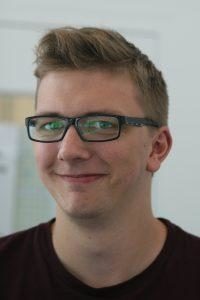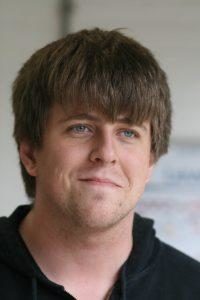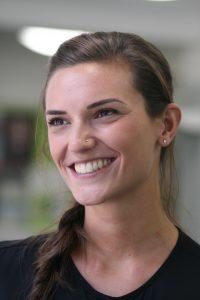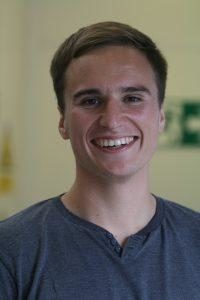Cohort 4 students registered at Bath on the WISE CDT Programme have successfully completed the Postgraduate School in mid-June and have now progressed to the research phase of their PhD programmes. It is a pleasure to welcome them to the University of Bath and particularly WIRC@Bath. Here are some short biographies by way of introduction:

Project: Process-based flood frequency analysis using storm-tracking
Supervisors: Dr Thomas Kjeldsen (ACE) and Dr Ilaria Prosdocimi (Maths)
Andy obtained his first-class BSc (Hons) in Computer Science from the University of Plymouth in 2017, where his dissertation focused on the optimisation of genetic algorithms for satisfiability problems such as Ramsey theory. Before this, he conducted a broad range of research including: the use of neural network approaches to model extreme rainfall, the applications of neuroevolution, blockchain architectures for digital voting and finally approaches to peer learning.
Outside of academia, he has also been an active member of the British Computer Society through taking on various voluntary roles such as the young person representative for the BCS South West branch (present) and chairman of the Plymouth Student Chapter (2015-16).

Project: Drinking water reservoir resiliency in a changing climate
Supervisors: Dr Lee Bryant and Dr Jun Zang (both ACE), Dr Danielle Wain (Maine), and Thomaz Andrade (Dwr Cymru-Welsh Water)
David recently graduated with an MSci in Physical Oceanography from Bangor University. During this time, he undertook a yearlong internship at the National Oceanographic Centre in Liverpool. This role primarily involved working as a research assistant; processing data for the Shelf Sea Biogeochemistry project whilst also undertaking research assignments. David was given the opportunity to present data at a variety of events, including the:
- Liverpool Marine Symposium, 2016
- Young Coastal Scientist and Engineers Conference, 2016

Project: Fate of emerging contaminants in the UK: mapping out the kinetics of degradation
Supervisors: Dr Nuno Reis and Dr Ana Lanham (both Chem Eng)
Federica graduated in 2016 with an MSc (Hons) degree in Environmental and Land Planning Engineering from the Polytechnic University of Milan following her Bachelors degree in the same subject. This included a 6-month MSc thesis completed in the Department of Chemical Engineering at Loughborough University under the supervision of Professor Li Puma and Dr Reis. Her Master’s dissertation was titled: ‘Performance of a MCF photoreactor for the inactivation of E.coli K-12 in milk.’ The project was focused on rapid UV-C inactivation of Escherichia coli in opaque fluids using a new scalable microfluidic photoreactor. This involved intense microbiological work at Loughborough University and modelling analysis at Polytechnic University of Milan under the supervision of Antonelli’s group, aimed at assessing the hydrodynamic reactor behaviour and the distribution of UV-C light. In 2017, she got her professional qualification of Civil Environment Engineering at Florence University.

Project: New microbubble method for dissolved air flotation
Supervisors: Dr Jannis Wenk and Dr John Chew (both Chem Eng)
Bert graduated in 2017 with a MEng (Hons) in Chemical Engineering from the University of Bath. In his final year he completed a group design project designing a plant which converts CO2 into useful hydrocarbon products as well as an individual design of a Reverse Water Gas Shift Reactor.
Bert undertook a yearlong placement as a Trainee Process Engineer within the Process Management Group at Coveris Advanced Coating. Working within a small engineering team, Bert undertook a wide variety of tasks and was given a significant amount of responsibility within this role. Such tasks included leading the design and installation of an upgraded filtration system, as well as developing pressure calculations for a feed system to model the flowrates that could be achieved with different types of fluid.
Welcome to all, and best of luck with your PhD projects!
Dr Tom Arnot, Co-Director EPSRC WISE CDT.
Respond


